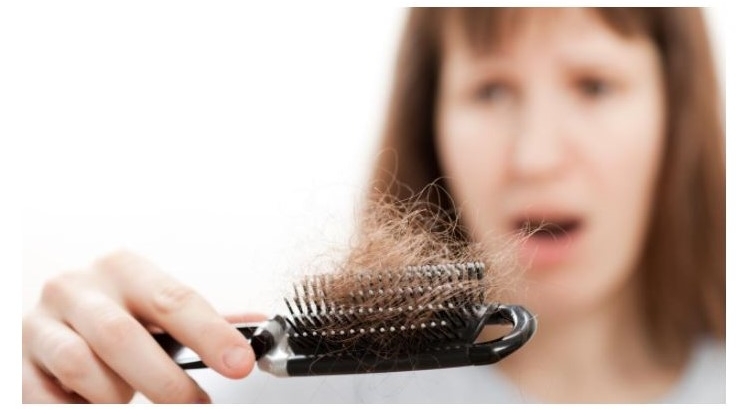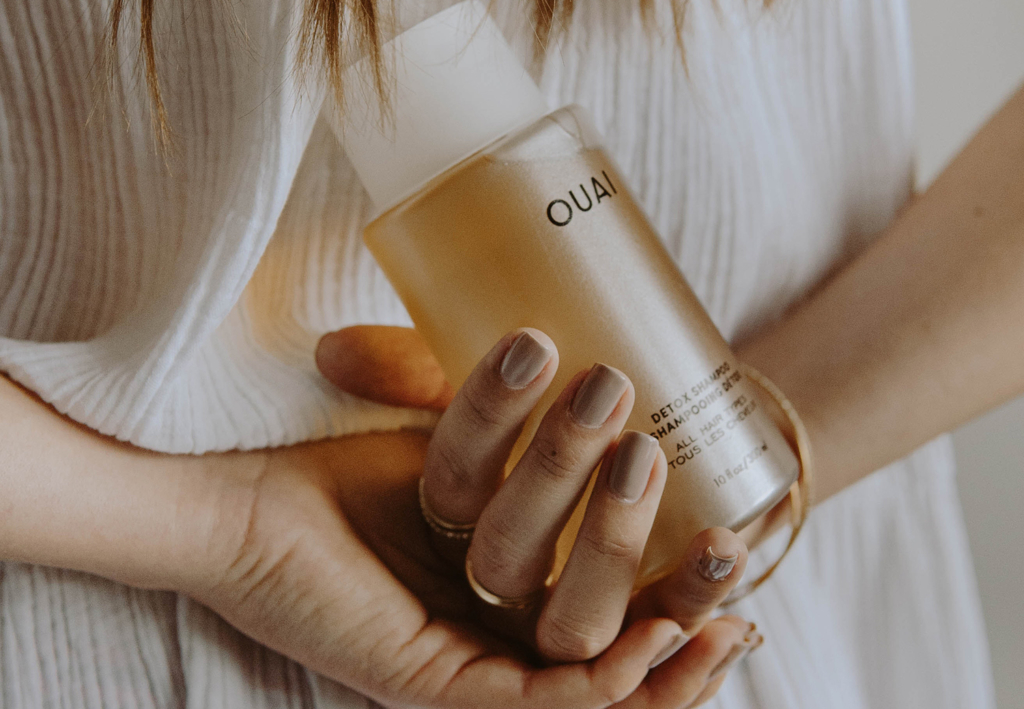FEATURED IN : HERALD SUN (MAR 2021)
COVID-19 causing many Australians to lose their hair
Distressed Australians are losing their hair in increasing numbers and health experts say COVID-19 is a key factor.
As the pandemic continues, some doctors are reporting a surge in patients suffering from stress-related hair loss. Meanwhile products designed to protect remaining locks or prevent more loss are also flying off the shelves, say experts. Hair loss known as alopecia areata has a ‘delayed effect’ that can occur months after someone experiences high levels of stress or trauma.
Trichologist Jane Davies says the number of patients with hair loss using her clinic has tripled in the past year. “We’ve seen many more people coming to see us with hair loss where the trigger has been caused indirectly by their lockdown experiences and environments,” she says. “Changes in nutrition, poor sleep quality, time outdoors and infrequent social contact are potential stressors to the body that can subsequently affect the hair and scalp. “When the body is stressed, either acutely or chronically, it uses its resources and processes to protect and repair itself. While it prioritises these resources non-essential systems can be paused, halted or degraded.”
COVID FACTOR
Meanwhile, dermatologist and founder of The Hairy Pill, Dr Rodney Sinclair, says a growing number of people are reporting hair loss after recovering from coronavirus. “Massive hair shedding begins approximately six weeks after catching the virus. It tends to last two to three months, stops and then recovers in most people — this is called telogen effluvium,” he says.
The condition is more common among women who often experience it after childbirth. Lexi Lamm, 36, says pandemic stress exacerbated her hair loss. She shed 40 per cent of her hair after suffering from telogen effluvium and androgenetic alopecia (male or female pattern baldness). “I started noticing it after my second son was born, followed by the stress of lockdown, pressures of being a mum with two kids and my husband trying to keep his business alive,” Lamm says. “My hair took around six months to grow back and I was prescribed a dose of medication. My self-confidence, motivation for work and exercise is all back now.”
BAD HABITS
Trichotillomania is another hair issue linked to stress. The condition causes people to pluck or pull at their hair, which can lead to breakage or the formation of bald patches. “Some stress sufferers will develop habits with their hair such as pulling on it or playing with it, which will remove or weaken the hair,” says Grow Haircare’s expert stylist and educator Belinda Keeley.
“When the body is subjected to extreme stress, as much as 70 per cent of hair can prematurely begin to fall, causing noticeable shedding.” Keeley says lack of protein is the most common deficiency in hair. “This cannot only damage healthy hair, but also inhibit your body’s ability to build new hair follicles,” she says.
“Many people in lockdown or working from home are likely washing and styling their hair differently or not at all. You could be shedding more hair because you’re washing or brushing it less often.” For those waiting for their hair to grow back, Keeley recommends choosing a hairstyle that focusses on texture, such as shorter layers or a blunt cut. “This will create the illusion of volume and fullness. Ideally, you’d want to avoid any styles that are long in length,” she says.
“Many people think longer styles are a good idea because it can “cover” the hair loss, but what it actually does is makes the disparity more apparent. Shorter styles work best and will avoid making you look like you have a comb over.”
PREVENT HAIR LOSS
Trichologist Megan Wright explains what to do if stress is affecting your crowning glory:
- The best way to minimise the possibility of hair loss is to have a nutritious, versatile diet and healthy lifestyle. The increase of vitamin D will benefit by boosting your immune system. Other vitamins needed to maintain healthy hair and skin include biotin, zinc, B vitamins and iron.
- Massaging the scalp is beneficial and lets people feel as though they are being proactive in their hair-loss treatment. Coconut oil and almond oil are both light and easily removed from the hair and scalp, so are recommended to try.
- Effective stress management is also critical. You can only control your response in a pandemic and prioritise your health. Try meditation or a calming activity. There has been documented evidence to associate meditation with the successful regrowth and treatment of hair loss.
- Green tea is a herbal remedy for hair loss. It has polyphenolic compounds, which are considered beneficial to prevent hair fall.
Read more on COVID 19 and hair loss in latest Herald Sun post.




